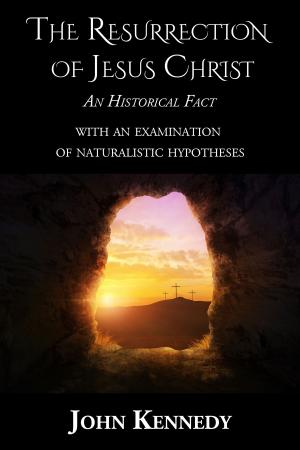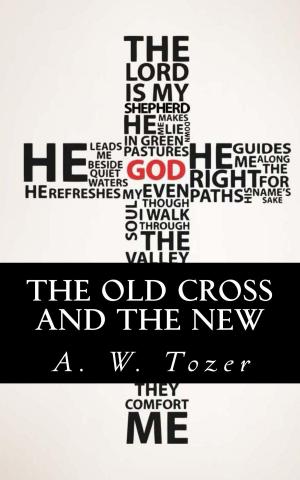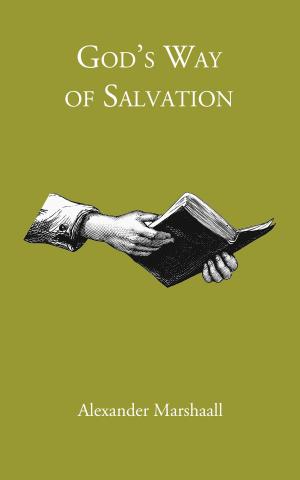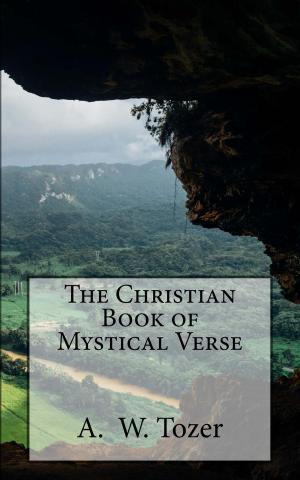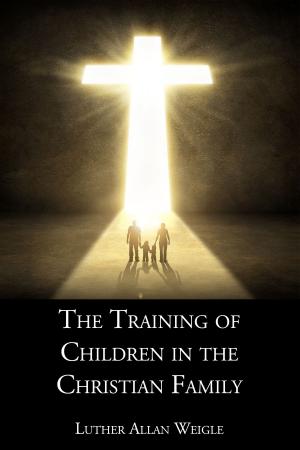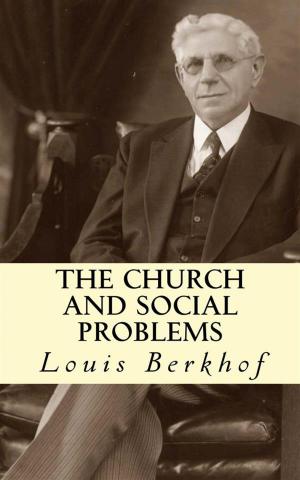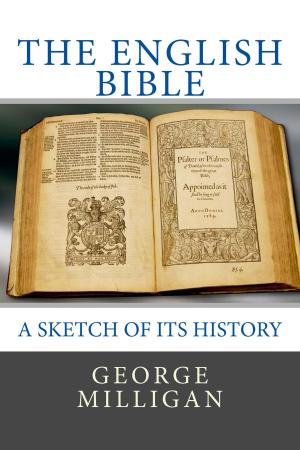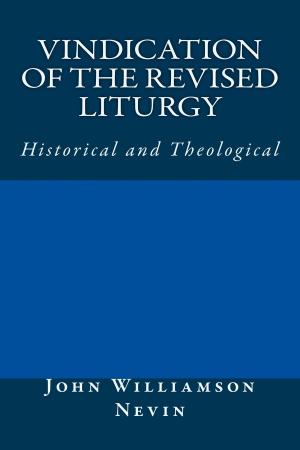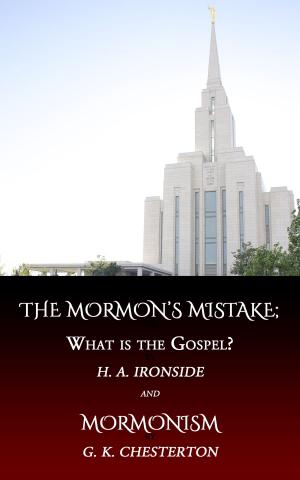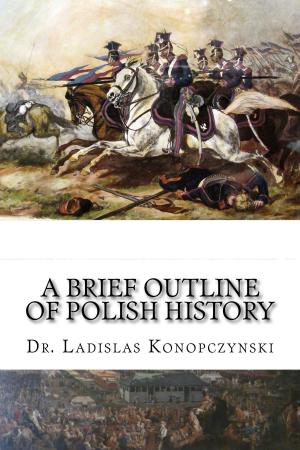The Bible in Five Years
A Comprehensive Outline for Study of the Entire Sacred Volume
Nonfiction, Religion & Spirituality, Bible & Bible Studies, Study| Author: | G. Campbell Morgan | ISBN: | 1230001943436 |
| Publisher: | CrossReach Publications | Publication: | September 29, 2017 |
| Imprint: | Language: | English |
| Author: | G. Campbell Morgan |
| ISBN: | 1230001943436 |
| Publisher: | CrossReach Publications |
| Publication: | September 29, 2017 |
| Imprint: | |
| Language: | English |
THESE LESSONS ARE suggestive merely. The arrangement is intended to give a course whereby the student shall gain a comprehensive knowledge of the Bible as a whole. In the study and teaching much will be required which is not supplied in this pamphlet. That may be obtained in general literature bearing on the subjects. Thirty-nine lessons are arranged for each year so as to leave three months for vacation periods, and Sundays on which the Festivals of the Church will be the subject of teaching, Christmas, Easter, and others.
In all teaching a matter of fundamental importance is that we should know the material with which we have to deal, both as to the subject to be considered, and the stage reached in the mental development of those to be taught.
In the period of youth, from fifteen or sixteen years and upward, all the faculties-the intellectual, the emotional, and the volitional-are tending toward consistency and balanced activity. The working of the will is now seeking for reasons for its choices; and yielding to the inspirations of emotion. This is the time when no side of the complex nature must be neglected, as everything is rapidly tending toward a consistent and poised attitude of life, which may be wholly good or wholly bad.
The hour has now come in which students are ready to receive the whole Bible. This, however, should be done with a distinct understanding in the mind of the teacher, that the central and final value of the Bible is Christ Himself. I am more and more convinced in my study and teaching of the Word of God, that whereas it is not ours to choose, and say that certain portions of the Bible are on a higher level of inspiration than others, it is ours to distinguish the difference between shadow and substance; between the finger-posts that direct men toward the city of God, and the city of God itself; between the divers portions and divers places of the Old, and the unified and final speech of the New. We have to introduce our students to the whole Library, and to the central Person, showing the relation between the two.
In the teaching of the Bible at this period it is necessary that we recognize two main qualities, those namely of the history it chronicles, and of the teaching it records.
In dealing with Old Testament history our work is to show that the first meaning and value of Biblical history is that it is a revelation of the activity of God. Its progress is the program of God. Its persons are the instruments of God. Its events constitute the mosaic of God.
In considering the teaching, in every case this must have its historic setting. By observing this principle it will be possible to show the development in revelation, which is so marked a feature of the Divine Library. I hold it to be of supreme importance therefore, that in our arrangement, some portion of the literature dealing exclusively with the Person of Christ and His mission, should be studied in each year.
This method of the study of the Bible is only possible at the stage when all the elemental faculties of the mind are coming into full play. Its value is that through it we come to the discovery of the grace and government of God as ultimately revealed through Christ, this being the true principle upon which these elemental faculties are rendered consistent and balanced.
THESE LESSONS ARE suggestive merely. The arrangement is intended to give a course whereby the student shall gain a comprehensive knowledge of the Bible as a whole. In the study and teaching much will be required which is not supplied in this pamphlet. That may be obtained in general literature bearing on the subjects. Thirty-nine lessons are arranged for each year so as to leave three months for vacation periods, and Sundays on which the Festivals of the Church will be the subject of teaching, Christmas, Easter, and others.
In all teaching a matter of fundamental importance is that we should know the material with which we have to deal, both as to the subject to be considered, and the stage reached in the mental development of those to be taught.
In the period of youth, from fifteen or sixteen years and upward, all the faculties-the intellectual, the emotional, and the volitional-are tending toward consistency and balanced activity. The working of the will is now seeking for reasons for its choices; and yielding to the inspirations of emotion. This is the time when no side of the complex nature must be neglected, as everything is rapidly tending toward a consistent and poised attitude of life, which may be wholly good or wholly bad.
The hour has now come in which students are ready to receive the whole Bible. This, however, should be done with a distinct understanding in the mind of the teacher, that the central and final value of the Bible is Christ Himself. I am more and more convinced in my study and teaching of the Word of God, that whereas it is not ours to choose, and say that certain portions of the Bible are on a higher level of inspiration than others, it is ours to distinguish the difference between shadow and substance; between the finger-posts that direct men toward the city of God, and the city of God itself; between the divers portions and divers places of the Old, and the unified and final speech of the New. We have to introduce our students to the whole Library, and to the central Person, showing the relation between the two.
In the teaching of the Bible at this period it is necessary that we recognize two main qualities, those namely of the history it chronicles, and of the teaching it records.
In dealing with Old Testament history our work is to show that the first meaning and value of Biblical history is that it is a revelation of the activity of God. Its progress is the program of God. Its persons are the instruments of God. Its events constitute the mosaic of God.
In considering the teaching, in every case this must have its historic setting. By observing this principle it will be possible to show the development in revelation, which is so marked a feature of the Divine Library. I hold it to be of supreme importance therefore, that in our arrangement, some portion of the literature dealing exclusively with the Person of Christ and His mission, should be studied in each year.
This method of the study of the Bible is only possible at the stage when all the elemental faculties of the mind are coming into full play. Its value is that through it we come to the discovery of the grace and government of God as ultimately revealed through Christ, this being the true principle upon which these elemental faculties are rendered consistent and balanced.


